Europe 2015
The Gaeltacht. For those unfamiliar with this term, it is used to describe the parts of Ireland where Gaelic is the primary language, with English as the second language. These areas, because of their work towards saving a dying language, receive extra money from the government. They are mainly in western Ireland, and one of the first things noticed is that road signs are often solely in Gaelic (good times if you don't speak the language). Dingle, and the dingle peninsula, was where I really started to notice this and realize that I was in the heart of the Gaeltacht.
My first night in Dingle I ate dinner at a pub. As I was sitting at the bar, I heard the young barkeep speaking to an older gentleman who was at the other end of the bar. It took me a few beats to realize that they were speaking to each other in Gaelic. It was beautiful to hear, particularly if you think about the language's recent history. Irish is, by all accounts, a dying language. Compare the maps of the Gaeltacht in 1926 vs 1956, and things are not getting significantly better. One change made by the Irish government, however, is to make Irish/Gaelic a mandatory class for school children attending publicly
cadt
14 chapters
16 Apr 2020
Dingle
The Gaeltacht. For those unfamiliar with this term, it is used to describe the parts of Ireland where Gaelic is the primary language, with English as the second language. These areas, because of their work towards saving a dying language, receive extra money from the government. They are mainly in western Ireland, and one of the first things noticed is that road signs are often solely in Gaelic (good times if you don't speak the language). Dingle, and the dingle peninsula, was where I really started to notice this and realize that I was in the heart of the Gaeltacht.
My first night in Dingle I ate dinner at a pub. As I was sitting at the bar, I heard the young barkeep speaking to an older gentleman who was at the other end of the bar. It took me a few beats to realize that they were speaking to each other in Gaelic. It was beautiful to hear, particularly if you think about the language's recent history. Irish is, by all accounts, a dying language. Compare the maps of the Gaeltacht in 1926 vs 1956, and things are not getting significantly better. One change made by the Irish government, however, is to make Irish/Gaelic a mandatory class for school children attending publicly
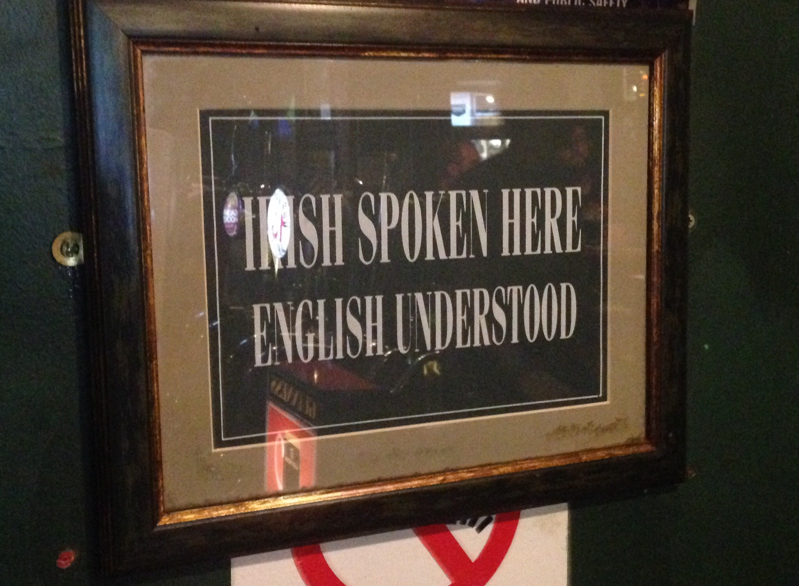
funded schools; this was not true in previous generations (eg my uncle's generation). Despite these efforts, some believe that within 10 years time Irish will no longer be the predominate language in many of the Gaeltacht regions. It has also been shown that despite it being a compulsory for students, few actually achieve proficiency. Some argue that it is a language of ethnic pride, but serves little practical use. This is truly unfortunate - it is a beautiful language and I do hope its course changes and it may once again thrive.
One man, hoping to keep his beloved language alive, has decided to ask for volunteers. These volunteers will be assigned one word and their task is to use that word, to teach others the word, to pass along the word to his or her children/neices/nephews in hopes of preserving that word. This man is passionate about his native language and that passion was evident even over radio waves. Had I
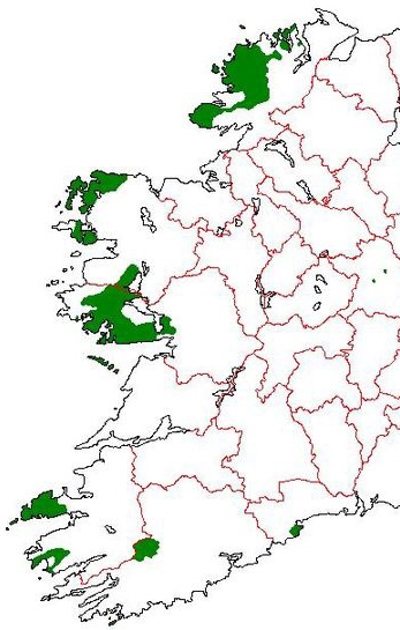
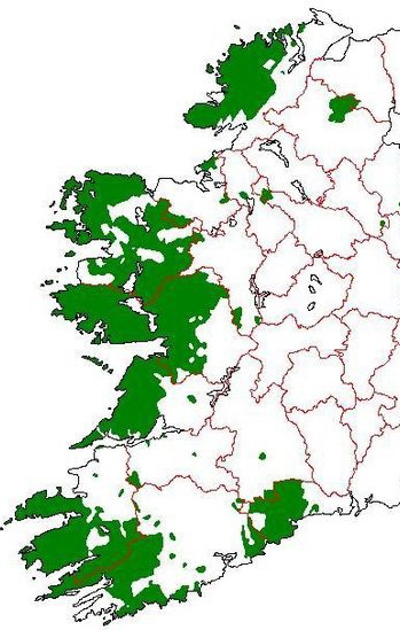
not been so intent on watching the road, I was half tempted to call into the radio station myself so that I, too, could be assigned a word.
Did you know that Irish has 4400 words to describe people? 4400?! Just to describe another human. That is incredible. Some are compliments, others less so. One word, phonetically porcvabaroon, means quiet thinker. Lovely. Irish, historically, was not a written language, thus those who spoke it had to be quite descriptive and it shows. They have words to describe things we don't even have in English. Ex. there is a word to describe the mark left by a tear running down your cheek. How beautiful! We all can picture this mark as it's described, but imagine having one word to do the work for you? Sadly, I do not recall what this word is. Another word (phonetically everacht) describes the slight disorientation you feel upon awakening just before dawn - that initial startle followed by a sense of well-being as you reorient. And then there is always uisce beatha (ish-ka ba-ha, water of life) that over time was anglicized to usquebaugh and eventually to whiskey (with the "e"). Attempting to learn Gaelic may be my next hobby.
***
Beyond the Dingle peninsula being my first introduction to the Gaeltacht, it is absolutely breathtaking, even in the pouring rain. I have fallen in love. I had the absolute joy of combining a beautifully sunny day, stunning countryside and a marvelously exhilarating horseback ride to help me fall in love with this place. It's hard not to enjoy yourself as you are racing your horse along the sandy beach with the ruins of an old look-out tower ahead of you, the quaint town behind you and all your worries no where near you. If I should choose not to return to the States, it's a good bet I am someone on the Dingle peninsula. Come visit!
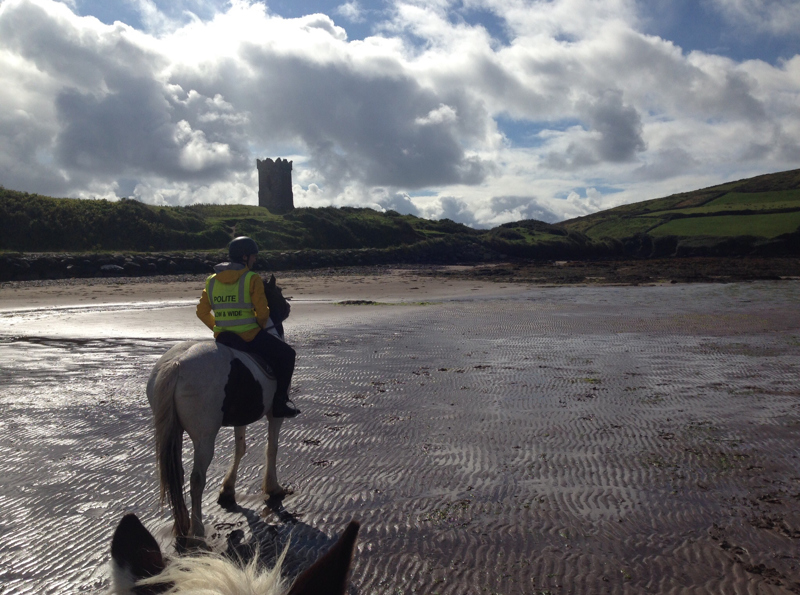
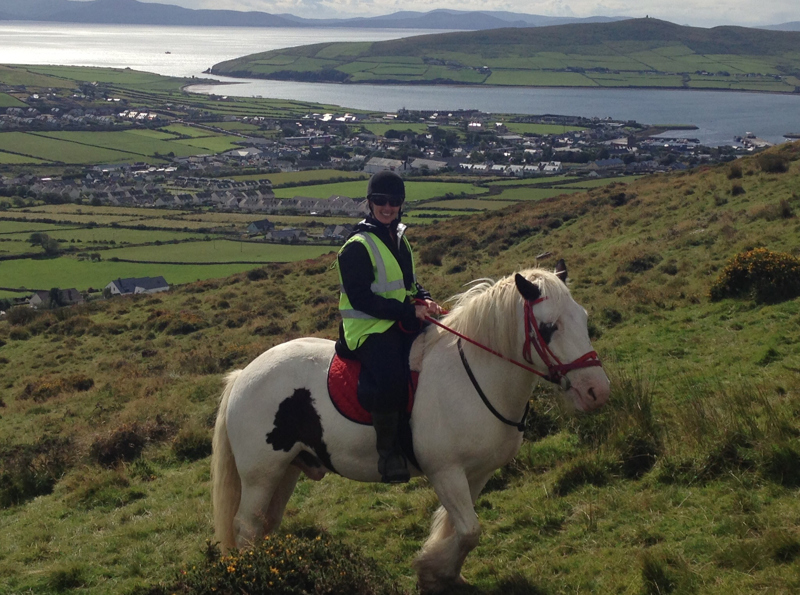
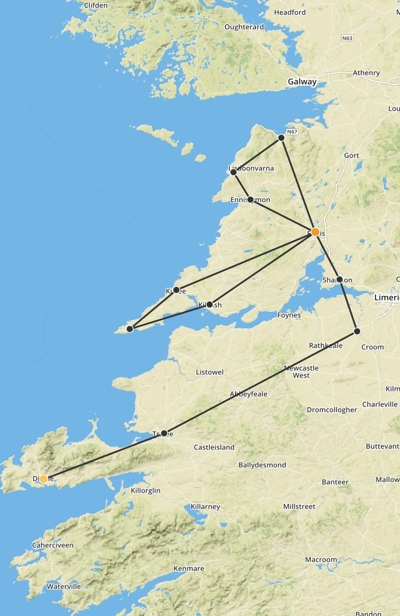
Share your travel adventures like this!
Create your own travel blog in one step
Share with friends and family to follow your journey
Easy set up, no technical knowledge needed and unlimited storage!
© 2025 Travel Diaries. All rights reserved.